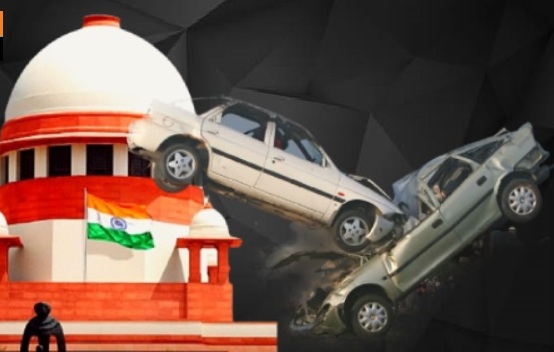Recently, the Supreme Court has expounded that “Merely because a person was attempting to overtake a vehicle, cannot be said to be an act of rashness or negligence with nothing to the contrary suggested from the record”.
SC Bench comprising of Justice Sanjay Karol and Justice CT Ravikumar further stated that, “Claimant-appellant, Prem Lal Anand doing an act which is an everyday occurrence on the road that is overtaking a vehicle, but resultantly suffered extensive injuries himself”.
Facts:
The claimant and his wife were involved in a motorcycle accident caused by two speeding tractors while travelling to Noida, which resulted in the death of his wife and the claimant sustaining serious injuries, fractured leg and broken jaw. They jointly earn Rs. 5000 per month from their business, which suffered losses after the wife’s death. The man filed a claim of Rs. 12,00,000/- in the Motor Accident Claim Tribunal, but the tribunal awarded only Rs. 1,01,250 with 12% interest per annum. He approached the high court for enhanced compensation, but the court upheld the tribunal’s decision.
Observation of the Court:
The SC bench observed that, as per the facts, one tractor driver was going slowly, leading the appellate to overtake. A second tractor driver was found to be driving rashly. This tractor driver was speeding and came from the wrong side of the road, causing a crash.
Apex Court enunciated that,“merely because a person was attempting to overtake a vehicle, cannot be said to be an act of rashness or negligence with nothing to the contrary suggested from the record. Further, it is the claimant-appellant(s) who lost a member of their family. Not only was the claimant-appellant, Prem Lal Anand, doing an act which is an everyday occurrence on the road that is overtaking a vehicle but he resultantly suffered extensive injuries himself. Apart from that, it has also been proved that the offending vehicle was driven rashly and negligently. These two factors, taken together, lead us to the conclusion that the finding of contributory negligence against appellant No.1 was erroneous and unjustified. Consequently, compensation awarded on this count has to be revised.”


